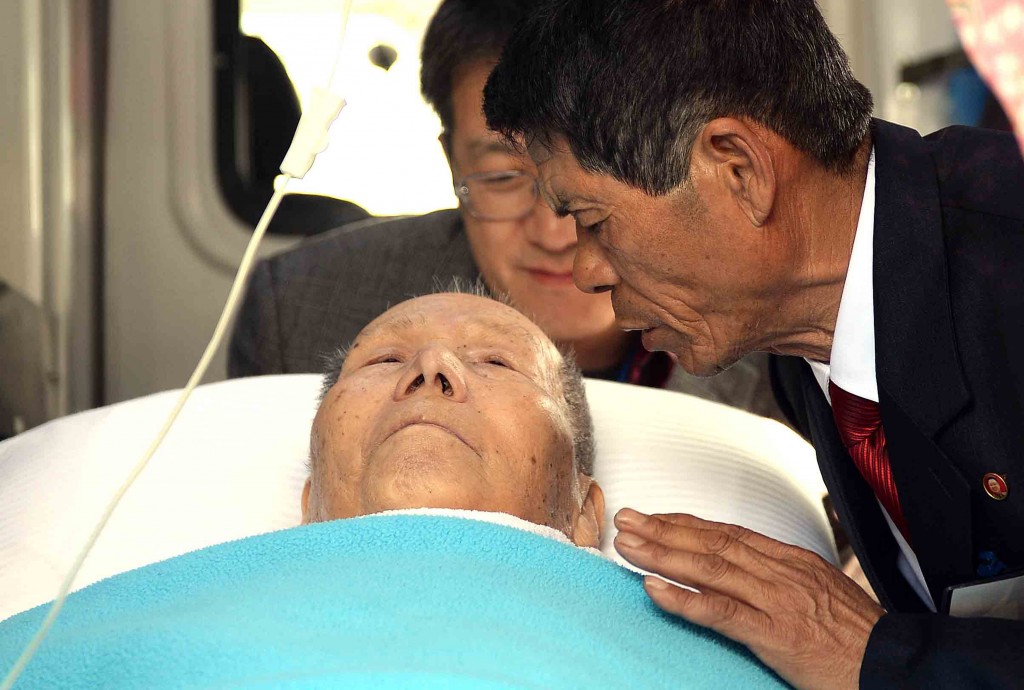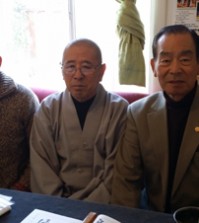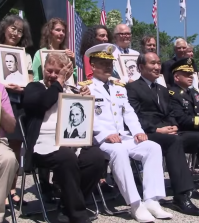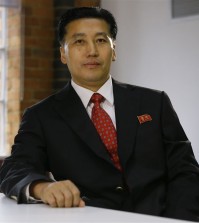- California Assembly OKs highest minimum wage in nation
- S. Korea unveils first graphic cigarette warnings
- US joins with South Korea, Japan in bid to deter North Korea
- LPGA golfer Chun In-gee finally back in action
- S. Korea won’t be top seed in final World Cup qualification round
- US men’s soccer misses 2nd straight Olympics
- US back on track in qualifying with 4-0 win over Guatemala
- High-intensity workout injuries spawn cottage industry
- CDC expands range of Zika mosquitoes into parts of Northeast
- Who knew? ‘The Walking Dead’ is helping families connect
Time to say goodbye…again
After six decades of separation, joy of reunion only last two-days
Calls increasing for regular reunions

Kim Jin-chun, 66, says goodbye to his 91-year-old father Kim Sum-kyung from the South, in an ambulance parked in front of a hotel in Mt. Geumgang Resort in North Korea, Friday. The father had to return to the South a day before the official closing of the reunions of separated families during the Korea War, due to health problems. (Yonhap)
By Jun Ji-hye
Calls are increasing to hold reunions for families separated by the 1950-1953 Korean War on a regular basis.
The appeals are being made because an increasing number of members of separated families have died or had to stay away from this week’s reunions due to health problems.
Events are still underway at Mt. Geumgang Resort in North Korea, but some people had to return home due to health problems, while others were not able to recognize their families due to Alzheimer’s disease.
According to the Ministry of Unification and the Red Cross, a total of 129,264 members of separated families applied for reunions from 1988 to December last year. However, only 25,282 have met their families since 1988 when the reunion events first began.
The ministry said 44.7 percent of the total applicants already died, with 3,841 people dead last year. It added that about 4,000 die every year.
Among 71,480 people alive, 52.8 percent are over 80 years old.
People waiting to attend the reunions say the current system has many limitations because only about 100 people from the South and North can meet their relatives and only after the governments of the two nations reach an agreement.
This week’s reunions were held after a suspension of three years and four months.
After the events, family members have to leave each other without any promise of meeting again.
“The two Koreas should expand the scale of reunions because 52.8 percent of surviving members are already over 80 years old,” said the Hyundai Research Institute (HRI) in a report published Thursday. “The government also has to consider ways of letting them to meet more frequently on such occasions as family members’ marriage or birthday, and national holidays of the two Koreas.”
In the mean time, a total of 82 elderly people from the South and 178 from the North went attended a second day of reunions, Friday.
They had individual meetings with their families in the morning, followed by a group lunch and another meeting in the afternoon at the Geumgangsan Hotel.
The events will conclude today.














